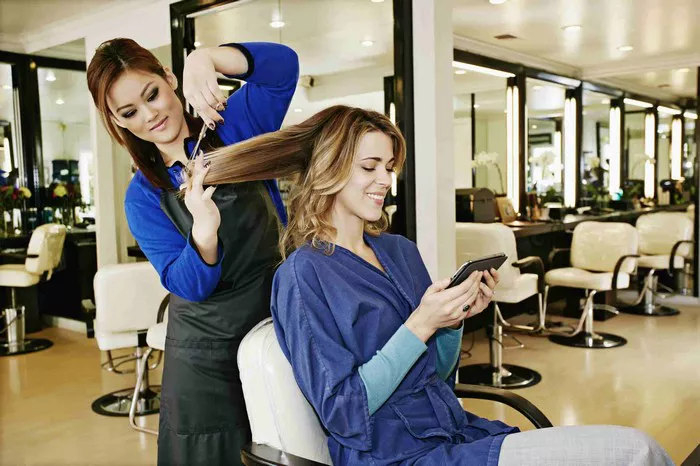The hairdressing sector in Australia is poised for growth. According to Statista, the number of hairdressers in the country is expected to reach approximately 69,600 by 2026.
Eli Bullo, who opened his unisex salon in Canberra in 2023, believes he made the right investment. However, he acknowledges that the journey has been challenging.
Overcoming Initial Doubts
Bullo recalls that in the Philippines, hairdressing is often seen as less prestigious compared to professions like engineering or medicine.
“At first, I was in denial about my passion because I knew some people looked down on hairdressing,” Bullo explains. “I feared my parents might compare me to my siblings, who are all professionals.”
After much reflection, Bullo decided to pursue a cosmetology course in his hometown of Surigao. He honed his haircutting and coloring skills while working in various salons.
Bullo eventually moved to Manila and established his own salon in Makati.
“Running a salon was humbling and challenging. I realized there was a lot I needed to learn,” he says.
International Experience Enhances Skills
With over two decades of experience in hairdressing and personal care, Bullo’s career has taken him to several countries, including Brunei, the UAE, and Bahrain.
“My international experience has greatly enhanced my skills, especially as a barber,” says Bullo. “I learned various shaving techniques that I now use with my male clients.”
During his time abroad, Bullo’s view of hairdressing changed. “I saw that hairdressing is a respected profession overseas. People are paid well, and it requires significant certification and training.”
Establishing a Home in Australia
Bullo migrated to Australia in 2016. After working in a salon for five years, he obtained permanent residency and decided to open his own business.
He invested about $60,000 to establish Haircrew Hive, a four-chair salon in Canberra. Bullo aims to elevate the hairdressing experience for his clients.
“I want to pamper my clients and help them relax. I include services like shampooing in the package so they don’t have to pay extra,” he says.
Bullo emphasizes the importance of salon insurance, particularly the ‘treatment risk extension,’ to protect against accidents involving hair chemicals.
He hopes that the Philippines will professionalize the hairdressing industry, ensuring that hairdressers are held accountable for any damage they cause to clients’ hair.


